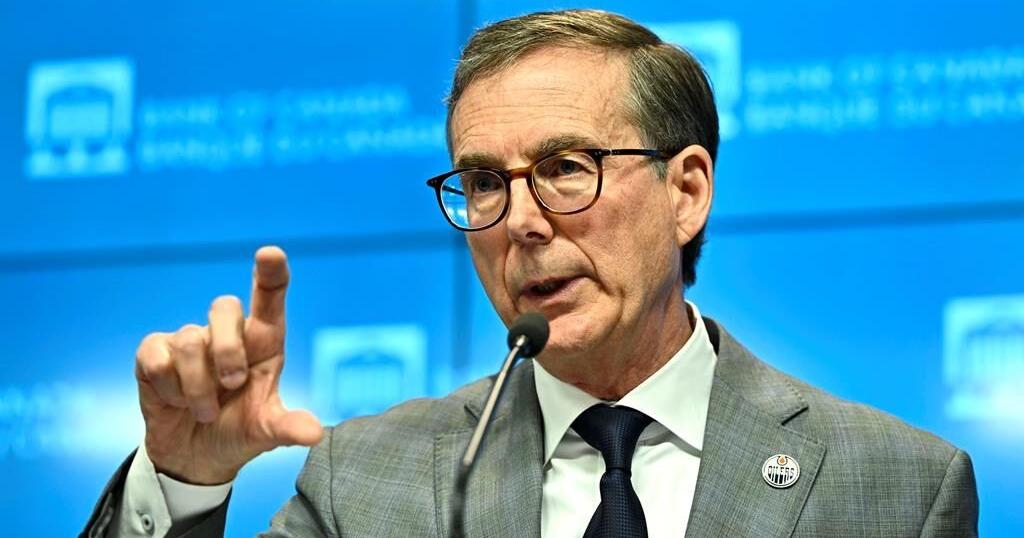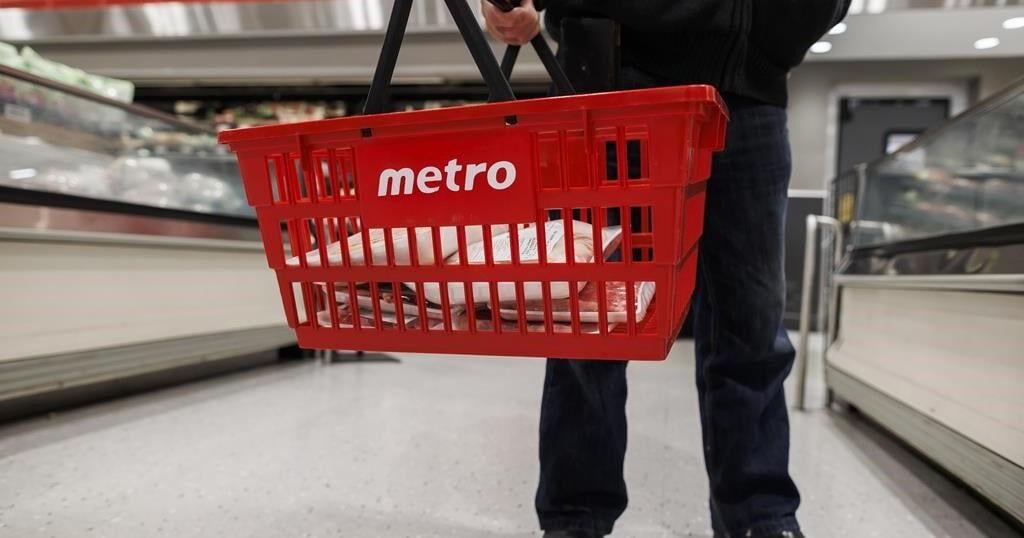OTTAWA – The Bank of Canada appeared to be increasingly concerned about the risk of high interest rates slowing the economy and inflation by more than necessary as it delivered a second consecutive rate cut Wednesday.
The central bank’s decision to lower its policy rate by a quarter of a percentage point was widely expected by economists, given the continued easing in inflation and weak economic conditions. Its key interest rate now stands at 4.5 per cent.
During a news conference, governor Tiff Macklem said that as inflation edges closer to the two per cent target, the risks associated with keeping interest rates high become more important for the central bank to consider. He noted that undershooting the inflation target would be just as concerning as overshooting it.
“That need for growth to pick up was something that was part of our decision to cut the policy interest rate today,” Macklem added.
The Bank of Canada’s emphasis on the state of the economy and the risk of keeping rates high for too long suggested to economists that more interest rate cuts could come sooner rather than later.
“It is definitely a clear shift in tone,” said BMO chief economist Douglas Porter.
“It almost does seem like now the bias is to continue cutting. They almost need to be persuaded not to keep cutting, I think.”
Although Macklem would not say what exactly the future path of rates may look like, he did signal there may be some curveballs along the way.
More specifically, the path back to two per cent inflation likely won’t be a straight line, he said.
“The overall weakness in the economy is pulling inflation down. At the same time, price pressures in shelter and some other services are holding inflation up,” Macklem said.
Although the governor said the Bank of Canada is “increasingly confident” that inflation is headed back to target, the push and pull between those opposing forces could affect the pace at which price growth eases.
“If inflation continues to ease broadly in line with our forecast, it is reasonable to expect further cuts in our policy interest rate. The timing will depend on how we see these opposing forces playing out,” he said.
“In other words, we will take our monetary policy decisions one at a time.”
The Bank of Canada delivered its first interest rate cut in four years last month, marking a major turning point in its battle against high inflation.
High borrowing costs have caused a pullback in spending by both consumers and businesses, which economists say has helped take the pressure off price growth.
Canada’s annual inflation rate fell back to 2.7 per cent in June after temporarily flaring up in May.
The Bank of Canada’s monetary policy report released Wednesday includes new forecasts, which suggest inflation will return to the two per cent target next year.
The Canadian economy, which the central bank notes remains weak relative to population growth, is expected to strengthen in the second half of 2024.
Real gross domestic product is expected to grow on average by 1.2 per cent this year, followed by 2.1 per cent in 2025.
The central bank’s next interest rate decision is scheduled for Sept. 4.
This report by The Canadian Press was first published July 24, 2024.























